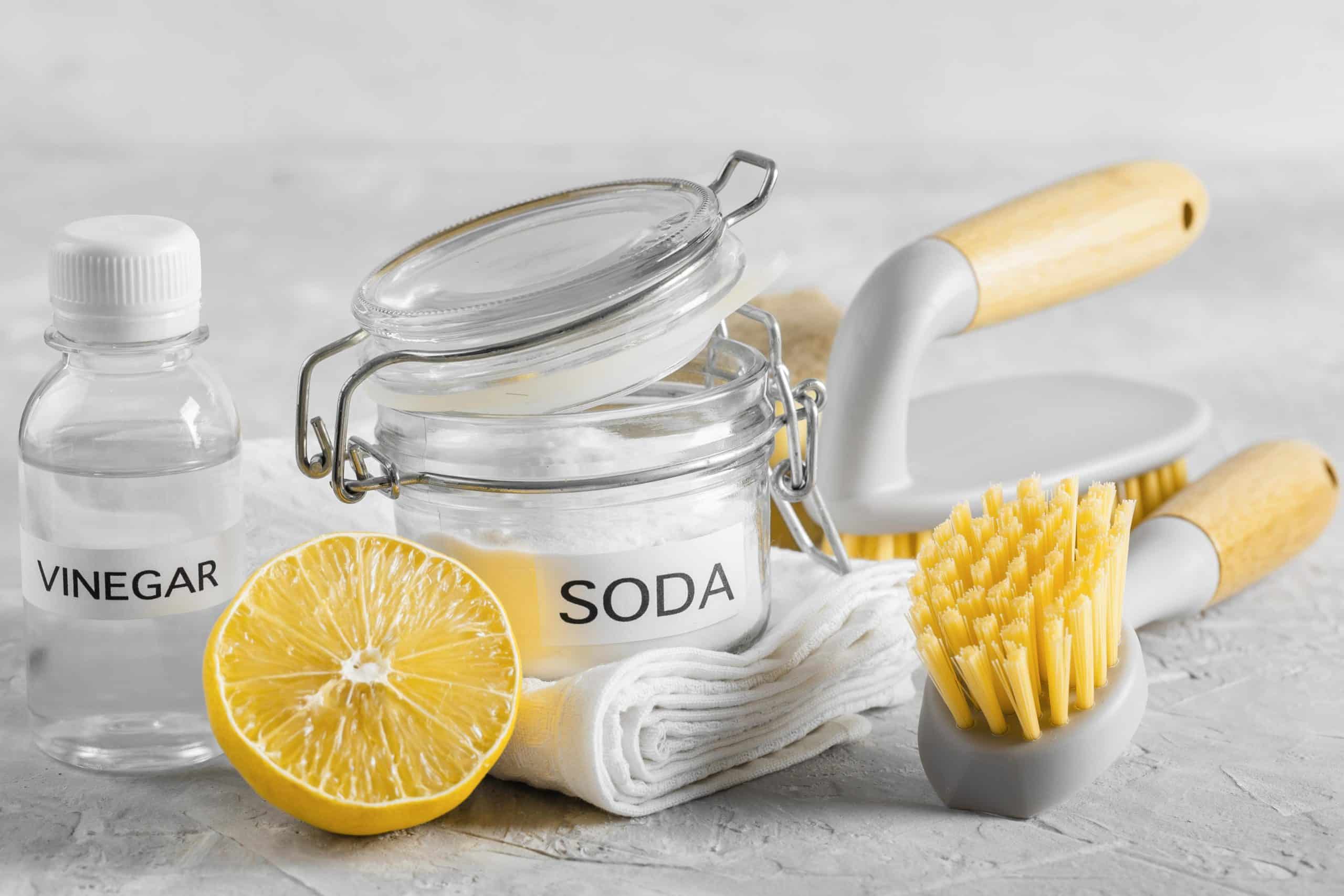To anyone asking how he or she can get a student loan for Pharmacy School, worry no more! We all know that the cost of attending a Pharmacy school can be quite high, these student loans can minimize those costs.
The student loans here provide financial aid for both international students and citizens studying abroad. In addition, their amount can be enough to cover your entire education. Just bear in mind that they will require repayment.
Just take your time and carefully read through the article. We have put down every detail you need about how to get student loans for pharmacy school.
So, before we continue, let’s go through the table of contents below to get an overview of what the article entails.
Table of contents
- What Are The Best Students Loan For Pharmacy School
- What Are Best Private Student Loans For Pharmacy School Students?
- What Percentage of Salary For Student Loans Pharmacy School?
- How Much Student Loan Can I Borrow For Pharmacy School?
- What Are The Private Pharmacy School Student Loan Refinance?
- How Do I Get Student Loans For Pharmacy School
- How to pay for pharmacy school while in college?
- CONCLUSION
- Reference
- Recommendation
What Are The Best Students Loan For Pharmacy School
pharmacy school can be very expensive. If you’re able to graduate without any student loans, that’s fantastic. But it’s also rather unlikely.
So, If you do need to take out student loans for pharmacy school, make sure you’re getting the best deal. Here are the best student loans for pharmacy school.
- Federal student loans
- Direct Subsidized or Unsubsidized Loans
- Direct PLUS Graduate Loans
- HRSA Health Professional Student Loan
- Private Student Loans
#1 Federal student loans
Student Loan Planner highly recommends, whenever possible that you take out only federal student loans for pharmacy school. This is especially true if you’ll owe more than your starting salary, as taking out anything but federal loans in this situation will put you in a bind.
One of the most significant benefits of federal student loans is that they qualify for income-driven repayment (IDR). Your payment will generally be 10% to 20% of your discretionary income, and you’ll be eligible for student loan forgiveness on any remaining balance after 20 to 25 years.
As a business student, you can read this Best Student Loans for MBA (Business Students) in 2024
#2 Direct Student Loans
After you’ve exhausted your own money (between savings, working, and scholarships), it’s time to consider student loans.
When looking at student loans, you should always start with Federal loans. The best Federal student loans are Direct Subsidized Loans, followed by Direct Unsubsidized Loans.
Direct Subsidized Loans are available to students who show a financial need. While, Direct Unsubsidized Loans are available to graduate and professional students and are distributed to individuals regardless of financial need.
#3 Direct PLUS Graduate Student Loans
These loans can be taken out to cover the maximum cost of attendance (according to your schools’ financial aid office), minus any other financial aid received. For most pharmacy students taking out student loans, Direct PLUS Loans can make up the difference of what’s needed to pay for college.
A Direct PLUS Loan does require a credit check, so if you have a poor credit history, you may need a cosigner to help you with the student loan.
Direct PLUS Loans have some of the highest interest rates for federal loans, so it’s essential to consider that when borrowing. If you have excellent credit, you might want to consider other options now or later.
#4 HRSA Health Professional Student Loan
The Health Resources and Services Administration (HRSA) provides low cost loans to pharmacy students who meet certain criteria.
This program provide long-term, low-interest rate loans to full-time, needy students to pursue a degree in pharmacy.
It might not be the right choice for everyone, but it’s definitely an option for some.
#5 Private Student Loans
Some pharmacy students cannot solely rely on Federal loans to pay for pharmacy school.
Either they exhaust Federal loan limits due to their school’s cost, they need more funds to cover living expenses while attending school, or they need more time to complete their education (which increases cost).
Given their excellent credit and repayment ability, others may find more value in taking on private loans. In this case, private student loans may be a cheaper alternative due to low-interest rates and excellent borrower programs.
What Are Best Private Student Loans For Pharmacy School Students?
Private student loans are provided by private lenders — banks, credit unions, and online lenders. You can use private loans to pay for education costs and living expenses, which your federal education loans might not cover.
However, interest rates and terms on private student loans can vary, depending on your financial situation, credit history, and the lender you choose. Private student loans can help pay for college after you hit federal loan limits
| Leaders | Rates from (APR) | Loan term | Eligible degrees |
|---|---|---|---|
| Ascent | Fixed: 4.00%Variable: 3.18% | 5, 10, 15 yrs | Undergrad & Graduate |
| Citizens Bank | Fixed: 4.40%5Variable: 1.47%5 | 5, 10, 15 yrs | Undergrad & Graduate |
| College Ave | Fixed: 4.39%6Variable: 1.79%6 | 5, 8, 10, and 15 yrs8 | Undergrad & Graduate |
| Discover Student Loans | Fixed: 5.09% APR – 12.49% APR12 Variable: 2.15% APR – 10.37% APR12 | 15, 20 yrs12 | Undergrad & Graduate |
| EDvestinU | Fixed: 4.52%13Variable: 2.35%13 | 7, 10, 12, 15, 20 yrs | Undergrad & Graduate |
| INvestEd | Fixed: 4.09%Variable: 2.77% | 5 – 15 yrs | Undergrad & Graduate |
| MEFA | Fixed: 3.95% | 10, 15 yrs | Undergrad & Graduate |
| Sallie Mae | Fixed: 4.74% APR – 11.85% APR9 Variable: 1.50% APR – 9.66% APR9 | 5 – 15 yrs10 | Undergrad |
You can also go through this article7 Practical Tips On How to Pay Off Your Student Loans very fast
What Percentage of Salary For Student Loans Pharmacy School?
Pharmacy school is expensive. There no way around that. However, pharmacists(in general) also earn significant salaries after graduation to possibly explain the high costs.
Eighty-five per cent of pharmacy school graduates took out loans to pay for their pharmacy degree program, according to a survey by the American Association of Colleges of Pharmacy. Among them, the estimated average pharmacist student loan debt at graduation was $172,329.
So, with a $172,329 student loan balance, you’d owe about $1,935 a month on the standard, assuming a 6.25% average interest rate on a 10-year federal repayment plan.
How Much Student Loan Can I Borrow For Pharmacy School?
Generally, pharmacy school is expensive.
So, before taking a loan, you should give a rough estimate or idea of how much you will need to borrow over the four to ten years or more that it can take to complete your education.
Also, pay attention to items like scholarships, 529 savings, and whether you can work during school to help reduce how much you need to borrow.
Graduate students can borrow up to $20,500 per year in Direct Unsubsidized student loans. With pharmacy school often being so expensive, you may end up with a funding gap. And you might need to turn to grad plus loans to cover the deficit.
What Are The Private Pharmacy School Student Loan Refinance?
Refinancing pharmacy school loans is a money-saving strategy for pharmacists who work in the private sector and have good credit and a relatively low debt-to-income ratio.
Reducing your interest rate can make a five-figure difference when you have six-figure pharmacy school debt. For instance, according to the average pharmacist, student loan debt in 2018, refinancing $166,528 from a 7% APR to a 5% APR would save $167 a month and more than $20,000 total, assuming a 10-year loan term.
In other words, pharmacists can consider refinancing once they’re employed full time. But don’t refinance federal loans if you’re interested in Public Service Loan Forgiveness or income-driven repayment — refinanced loans aren’t eligible for those programs.
Here is the list:
- CommonBond Student Loan Refinance
- SoFi Student Loan Refinance
- Earnest Student Loan Refinance
- Splash Financial Student Loan Refinance
- Education Loan Finance Student Loan Refinance
- Discover Student Loan Refinance
- LendKey Student Loan Refinance
- PenFed Student Loan Refinance
- Laurel Road Student Loan Refinance
- Citizens One Student Loan Refinance
Let’s talk about some of the private refinance lenders
#1 CommonBond Student Loan Refinance
Best for borrowers who have a bachelor’s degree and value repayment flexibility. The available term lengths are 5, 7, 10, 15 or 20 years.
Fixed APR 3.22 – 6.45%, Variable APR 3.49 – 5.64%, Min. Credit Score 680
Pros
- A Forbearance of 24 months is longer than many lenders offer.
- You can refinance parent PLUS loans in your name.
- You can see if you’ll qualify and what rate you’ll get without a hard credit check.
Cons
- Loans aren’t available in Mississippi and Nevada.
Qualifications
- A typical credit score of approved borrowers or co-signers: Did not disclose.
- Loan amounts: $5,000 to $500,000.
- Must have a degree: Yes.
#2 SoFi Student Loan Refinance
Best for borrowers who want plenty of benefits with their refinanced student loan. The available term lengths 5, 7, 10, 15, or 20 years.
Fixed APR: 3.75 – 6.67%, Variable APR: 3.50 – 6.67%, Min. Credit Score: does not disclose
Pros
- You can refinance parent PLUS loans in your name.
- You can see if you’ll qualify and what rate you’ll get without a hard credit check.
- Additional perks like career planning, job search assistance, and entrepreneurship support are available.
Cons
- No co-signer release is available.
- The loan size minimum is higher than most lenders.
Qualifications
- A typical credit score of approved borrowers or co-signers: 700+.
- Loan amounts: $5,000, up to your total outstanding loan balance.
- Must have a degree: Yes, an associate degree or higher.
As a student this article is important for you to read Discover Student Loans Scholarship/Apply
#3 Earnest Student Loan Refinance
It is best for borrowers who want to customize their repayment schedule to pay off debt quickly. The available term lengths 5 to 20 years
Fixed APR: 3.75 – 8.77%, Variable APR: 3.50 – 8.72%, Min. Credit Score: 65
Pros
- Customizable payments and loan terms.
- Option to skip one payment every 12 months.
- You can see if you’ll qualify and what rate you’ll get without a hard credit check.
Cons
- You can’t apply with a co-signer.
- Loans aren’t available in Delaware, Kentucky, and Nevada.
Qualifications
- A typical credit score of approved borrowers or co-signers: Did not disclose.
- Loan amounts: $5,000 to $500,000.
- Must have a degree: No, but within six months of graduation and have income or a job.
#4 Splash Financial Student Loan Refinance
Best for married couples who want to refinance their student loans into a single loan. The available term lengths are 5, 7, 8, 10, 12, 15, and 20 years.
Fixed APR: 2.88 – 7.27%, Variable APR: 1.99 – 7.10%, Min. Credit Score: 670
Pros
- Married couples can refinance student loans into a single loan.
- You are assigned a dedicated banker.
- You can see if you’ll qualify and what rate you’ll get without a hard credit check.
Cons
- No formal deferment/forbearance options.
- You may need to become a member of a credit union to qualify.
Qualifications
- Typical credit score of approved borrowers or co-signers: 778.
- Loan amounts: $5,000 to no maximum.
- Must have a degree: Yes, a bachelor’s degree or higher.
#5 Education Loan Finance Student Loan Refinance
Best for borrowers who value good customer service. The available Term Lengths: 5, 7, 10, 15, or 20 years. Fixed APR: 3.30 – 6.69%, Variable APR: 2.39 – 6.01%, Min. Credit Score: 680.
Pros
- Above-average customer support compared with other lenders.
- You are assigned a personal loan advisor.
- You can refinance parent PLUS loans in your name.
Cons
- Payment postponement isn’t available for borrowers who return to school.
- The minimum amount to refinance is more than many lenders require.
Qualifications
- A typical credit score of approved borrowers or co-signers: 774.
- Loan amounts: $15,000 up to your total outstanding loan balance.
- Must have a degree: Yes, at least a bachelor’s degree.
How Do I Get Student Loans For Pharmacy School
Here is how you can typically get funds if you took a student loan for pharmacy school
- Fill out the student loan and get approved
- The loan money is sent directly to your school.
- The financial aids office of your school will apply the loan to your tuition, fees, and other school direct expenses. NB: to qualify for either of these loans, however, you’ll need to demonstrate need. If you’re applying for an HRSA Health Professions Student Loan, you must prove your financial need.
- If any amount is remaining, the financial aid office will ask if you want to keep the money or send it back to the lender.
- You tell them you would like part or all of the remaining funds. This is otherwise called a student loan refund.
- The financial aid will send the refund to the bursar’s office.
- You go to the bursar’s office to deposit the refund cheque into your bank account.
- After the deposit, you can then use it to pay for your pharmacy school.
How to pay for pharmacy school while in college?
Pharmacy school is expensive. There is no way around that. However, pharmacists(in general) also earn significant salaries after graduation to potentially justify the high costs.
As such, you need to know the options for how to pay for pharmacy school in the most effective way possible. Honestly, this order of operations applies to paying for college in general, as well.
However, here is the order of operation to pay for the pharmacy school
- Apply for Free Application for Federal Student Aid (FAFSA)
- Then start is your own savings; I know this won’t get you far, but if you’ve worked in high school or during undergrad, you might have a nice bit of money saved up that can help offset the costs of pharmacy school.
- You can work while schooling
- Apply for varieties of undergraduate scholarships available. Some are merit-based, and some are not from your individual.
- Pay with student loans
CONCLUSION
Indeed, student loans are like lifesavers that save you from that pool of college expenses. So this article on how you can get a student loan for pharmacy school will go a long way when applying for a student loan.
Also, if you have exhausted all options like working, your savings, or applying for a scholarship and must take a student loan, apply for federal loans first and only use alternative student loans as your last resort.





